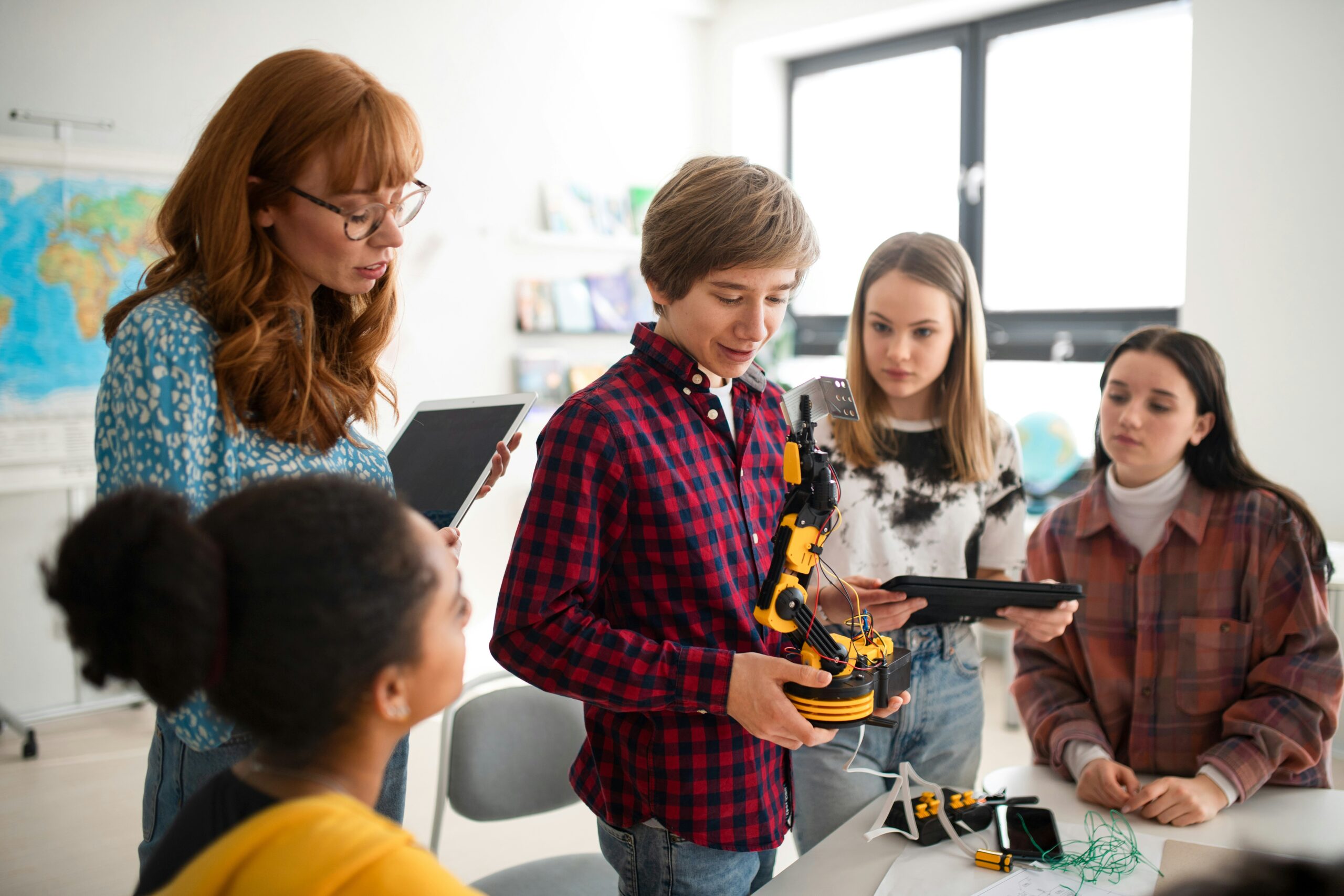
Engineering education stands at the forefront of shaping the future in the ever-evolving landscape of technological advancements and innovation. As the world embraces rapid digital transformation, the demand for skilled engineers continues to soar. However, traditional approaches to engineering education often fall short of preparing students for the complexities of modern challenges. It’s time to reimagine engineering education and unleash its visionary impact on society.
Embracing Innovation in Curriculum Design
The cornerstone of reimagining engineering education lies in embracing innovation in curriculum design. While core technical competencies remain vital, there’s a growing recognition of the need to integrate interdisciplinary knowledge and soft skills into engineering programs. By fostering collaboration between engineering and other disciplines, such as computer science, business, and design, students gain a holistic understanding of real-world problems and develop versatile skill sets.
Introducing project-based learning initiatives allows students to apply theoretical knowledge to practical scenarios, encouraging critical thinking and problem-solving abilities. By working on real-world projects, students hone their technical skills and cultivate essential skills such as teamwork, communication, and adaptability. Moreover, incorporating experiential learning opportunities through internships, co-op programs, and industry partnerships provides students with invaluable hands-on experience and exposure to emerging technologies and trends.
Cultivating Creativity and Entrepreneurship
Innovation thrives on creativity and entrepreneurship, yet traditional engineering education often overlooks these aspects. Students are empowered to think outside the box and develop innovative solutions to complex challenges by fostering a culture of creativity and entrepreneurship within engineering programs. Incorporating design thinking methodologies encourages students to empathize with end-users, identify unmet needs, and prototype solutions iteratively.
Moreover, integrating entrepreneurship education into engineering curricula equips students with the knowledge and skills needed to bring their ideas to market. Aspiring engineering entrepreneurs can transform their innovative concepts into viable ventures by providing access to resources such as business incubators, mentorship programs, and seed funding. Cultivating an entrepreneurial mindset prepares students for startup careers and instills them with the resilience and agility needed to navigate the ever-changing landscape of the global economy.
Embracing Diversity and Inclusion
By actively recruiting and supporting students from diverse backgrounds, engineering programs can harness broader perspectives and experiences, fostering innovation and creativity. Implementing initiatives such as mentorship programs, diversity scholarships, and inclusive leadership training helps create a supportive ecosystem where all students feel valued and empowered to succeed. Additionally, highlighting the contributions of diverse engineers throughout history and showcasing diverse role models in the field inspires the next generation of engineers from all walks of life.
The future of engineering lies in embracing diversity and inclusion. Traditional engineering education has often been criticized for its lack of diversity, with women and underrepresented minorities being vastly underrepresented in the field. To unlock the full potential of engineering education, it’s essential to create inclusive learning environments that celebrate diversity and promote equity.
Leveraging Technology for Learning
Technology has become an indispensable tool for learning and collaboration in the digital age. By leveraging technology-enhanced learning platforms, engineering education can transcend the boundaries of traditional classrooms and reach learners on a global scale. Virtual labs, simulation software, and online learning modules allow students to engage with course materials at their own pace and explore complex concepts through interactive multimedia content.
Moreover, emerging technologies such as artificial intelligence, virtual reality, and augmented reality hold immense potential for transforming the way engineering concepts are taught and understood. By integrating these technologies into curricula, educators can create immersive learning experiences that simulate real-world scenarios and foster deeper comprehension. Additionally, online collaboration tools and social learning platforms facilitate peer-to-peer knowledge sharing and collaboration, enriching the learning experience and fostering a sense of community among students.
Driving Social Impact and Sustainability
Engineering education is not just about technical proficiency; it’s also about driving positive social impact and sustainability. As the world faces pressing challenges such as climate change, resource scarcity, and social inequality, engineers have a crucial role in developing sustainable solutions that benefit society as a whole.
Engineering education can shape the future in profound ways. By reimagining traditional approaches and embracing innovation, creativity, diversity, and technology, we can unlock the visionary impact of engineering education and empower the next generation of engineers to tackle the challenges of tomorrow with confidence and conviction. Together, let’s harness the transformative potential of engineering education to build a brighter, more sustainable future for all.
By integrating courses on sustainable design, renewable energy, and social responsibility into engineering curricula, students are equipped with the knowledge and skills needed to tackle these complex issues head-on. Moreover, service-learning initiatives and community engagement projects allow students to apply their engineering expertise to address local and global challenges, making a tangible difference in the world.